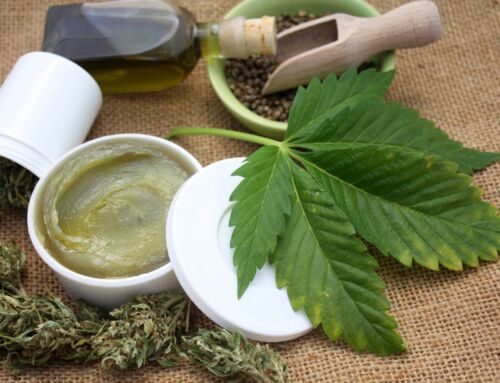If there was an option for treatment-resistant diagnoses, wouldn’t you want to be connected to it?
Millions of people around the globe utilize medical marijuana to treat an abundance of ailments and symptoms. And with the forward motion of medical remedies, marijuana has become far more accessible to those who may need it the most. Pennsylvania has made efforts to connect the dots and offer medical cards to those with qualifying conditions.
PA medical marijuana is available to its residents with physician’s orders.
In the thick of a full-blown opioid epidemic, physicians have been exploring alternative pain relief for their patients. The idea is to create an option that supports medical marijuana being utilized effectively for pain management. Pennsylvania cannabis laws can help you advocate for your PA medical marijuana card.
Let’s dive into the steps and process of obtaining a PA medical card.
Qualifying Conditions
Like any program, there are policies, standards, and procedures by which the organization abides. In this case, having a specific diagnosis that can benefit from medical marijuana treatment is the main qualifier.
There are a plethora of conditions that qualify you for a medical marijuana card in Pennsylvania. This list includes everything from anxiety disorders to Crohn’s disease, multiple sclerosis, and more. Having established rapport with your physician puts you in a better position to advocate for your needs.
Documentation of your analysis will be evaluated. It will determine if medical marijuana is the appropriate treatment for your diagnosis. You can access your records through your provider-patient portal or by requesting them.
Many people will bring a copy of their last office note or a printout of her diagnosis.
When it comes to registration, you can connect with the state health department’s registry online. Enter your basic demographics and have your state-issued driver’s license or identification card. It’s important to note that your address must be matching your state ID.
Any person with a qualifying chronic medical condition who is a Pennsylvania resident is welcome to participate in Pennsylvania‘s medical marijuana program. If you’ve been thinking over your health needs with your doctor, you will need to have them approve your participation.
If you don’t have a primary care physician, now is the time to get the ball rolling.
Provider Innovation
Connecting with a doctor is not always as easy as it sounds. Depending on a person’s insurance, local doctors, and population, it could take weeks just to make your first appointment. Make sure that you budget enough time and expect to wait at least 1 to 2 months to establish a primary care physician.
During the early days of the pandemic, policies across the globe adjusted to account for at-home processes. Pennsylvania started allowing physicians to certify patients through remote consultations. Whether through video chat or phone calls, everyone was able to get their needs met.
This exchange worked so well that it is now a permanent adjustment in the state of Pennsylvania. Remote consultations are convenient, to say the least. There’s no place more comfortable to have a doctor’s visit than your own warm, cozy home.
You’ll have the time to jot down some notes you’d like to discuss with your doctor before your appointment.
Because you’re in a familiar space, you’re likely better equipped to identify your concerns from beginning to end. Since doctor’s appointments can sometimes induce anxious feelings, having notes ready is key. It can speed up the process and ensure that your provider has all the information they need to move forward.
During a remote consultation, a physical exam is not needed. Your practitioner will check in about your medical history. They will talk to you about Pennsylvania’s medical marijuana program and give you an idea of what visiting a dispensary will be like.
Consultations might come with a cost that is not covered by insurance. Be mindful that it could cost you somewhere between $100-$200 out of pocket.
Participation
When you choose to be an active participant in your own healing, doors begin to open left and right. For so long, patients have struggled to identify their needs and use their voices to tell their providers what type of support they’re looking for.
Advocating for your medical marijuana card is crucial. It is one of the first steps to recognizing how deserving you are of the proper treatment and support. To take part in this program, patients must check off four boxes.
The first checkpoint is getting registered through the Pennsylvania Department of Health website. After that, connect with a vetted practitioner to become certified. Once you pay for your medical marijuana identification card, you can visit a dispensary in Pennsylvania and show them your card.
You will need to verify your identity in the form of a driver’s license, state-issued ID card, and a working email address. And once your information has been confirmed and approved, you will receive your patient ID number by logging in to your online portal. The fee for a medical marijuana card is $50.
After you pay for your ID card, it could take up to two weeks to receive it in the mail. And once you have your ID card, it’s time to shop at a dispensary to connect with a prescription. Individuals and families who receive support from programs like Medicaid, chip, snap and WIC may qualify for discounts.
Many dispensaries have different rules and some require appointments, especially for your first visit. Doing a little bit of research before you connect will help with overwhelm.
Registration & Renewal
We follow a set of expectations that afford us safety, equity, and prosperity in our communities.
Like most things that require legal expectations, as a medical marijuana cardholder, there are a few things that you are required to take care of bylaw throughout the year. It is crucial to stay on top of these expectations the way you would with your car registration or vehicle insurance.
Medical marijuana has shown the world its undeniable benefits, and your certification is a privilege. And like other privileges, eliminating any risk of losing that privilege is imperative to you receiving a continuum of healthcare.
You will receive an email two months before your certification and medical marijuana ID card expire. Just like the way you might receive a notification when you’re down to your last prescription refill. Then, you can begin the renewal process for your registration.
Renewing your medical marijuana card can be done online. You can log into your patient dashboard as a returning user. Double-check your demographics to make sure they are accurate and reflect your current address. Once the right information is confirmed, you can click renew my registration.
When you complete that process, you will receive an email guiding you towards the next step. You will visit your previous provider or anyone if you’ve switched care to get your patient certification. You don’t have to see the exact same Doctor who issued your previous certification.
Once your certification is completed by your provider, a new card will be issued and mailed to you at your address listed on your patient dashboard.
Pro-Tips
Pennsylvania cannabis laws are going to look different from other states. Much like liquor laws, driving laws and other nuanced standards can shift based on need and populous.
Many people are curious if they can travel with medical marijuana. The reality is that traveling across state lines with marijuana violates the law on the federal level. This means that you could potentially be arrested under possession laws even if you’re registered in your home state.
It is your responsibility to be aware of what the laws are in the states that you’re traveling to. The “I wasn’t aware” argument definitely isn’t going to hold up in court. So be prepared and well versed before you head outside of Pennsylvania state lines.
Medical marijuana is available in PA to be taken orally through pill form, oil, creams, and ointments or tinctures. Any other medically approved forms may be administered through vaporizing or nebulizing. Dosages are determined by your local pharmacist and you are allowed to have a 30 day supply at one time.
The marijuana itself is not covered by your insurance. Connecting with your licensed dispensary can show you what costs could look like. PA dispensaries are required by law to have a medical professional on-site at every moment.
Many patients find the convenience and safety that this provides to be competent. You can schedule an appointment before you head to a dispensary to talk with these medical professionals about your symptoms and collaborate with dispensary staff to find the right form for you.
It wasn’t that long ago that discussing medical marijuana felt a little taboo. And then, breakthroughs in clinical trials and honest conversations about what healing can look like began. Medical marijuana has become a staple of support treating symptoms from conditions that would have found no relief otherwise.
Dispensary Etiquette
PA medical marijuana dispensaries are approved through the state’s Department of Health.
When it comes to finding the proper dispensary for your needs, it’s important to do your research. Not all shops are exactly the same. Each dispensary has a different scale of pricing, niche treatments, and strains that could be more or less beneficial for your chronic diagnoses.
Make sure that you bring cash as that is often the main form of payment or the only form of payment at a dispensary. You’ll also need to make sure that you have your state ID and medical marijuana card ID. It’s possible that multiple entrances could be for specific clients.
You may see an entrance labeled medical entrance and another labeled recreational entrance. You can talk to the staff at the dispensary about strains that may best support your ailments. You want to discuss proper and safe consumption methods and what doses are appropriate for you.
With a little trial and error and airing on the side of caution, you will find the exact treatment combination that best serves your body. It’s important to ask questions. While this could be unfamiliar territory for you, do not be intimidated by the dispensary aesthetic.
You are a medical marijuana cardholder and as such, you should find empowerment in your ability to advocate for your needs. There’s a silver lining in this experience for you. And you can utilize your support system to help you identify questions or concerns that may come up.
Many people have reported that the process of obtaining their medical marijuana card has put them in a position of control in symptom management. This not only contributes to a better quality of living, but it expands a person’s support system, highlighting the power they have in options.
PA Medical Marijuana
Obtaining your PA medical marijuana certification and ID card does not have to be an intimidating process.
It’s all about the right doctors, the right dispensaries, and a little bit of confidence. You’ll find that this process is worth your right to manage the difficult pieces of your illness. Pennsylvania cannabis laws are created to keep providers, caregivers, and patients safe.
If you do your research and be mindful of the legalities, this experience can set you up for smooth sailing. If you’re ready to advocate for your treatment, connect with us to learn more.






